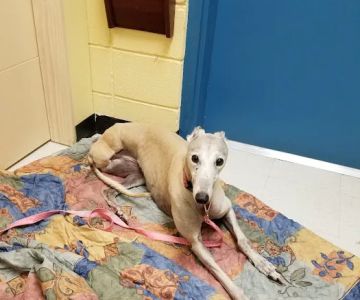Who Is a Veterinary Surgeon? Exploring the Role, Skills, and Career Path
- What is a Veterinary Surgeon?
- Skills Required for Veterinary Surgery
- How to Become a Veterinary Surgeon
- What Do Veterinary Surgeons Do?
- Why Veterinary Surgeons Are Important
1. What Is a Veterinary Surgeon?
When you think of a veterinary surgeon, the image that likely comes to mind is that of a professional caring for animals in a clinic, performing surgeries, and helping to diagnose illnesses. But, what exactly is a veterinary surgeon? This highly skilled professional is responsible for performing surgeries on animals, as well as diagnosing and treating various medical conditions. They specialize in animal health and welfare, using both medical and surgical techniques to ensure that pets, farm animals, and other creatures receive the best possible care. Veterinary surgeons often work in hospitals, private practices, and even specialized clinics focused on certain types of animals.
2. Skills Required for Veterinary Surgery
Becoming a veterinary surgeon is no easy feat. It requires a combination of scientific knowledge, hands-on skills, and a passion for animal welfare. Here are the core skills that every veterinary surgeon needs:
2.1 Medical Knowledge
A deep understanding of animal biology, physiology, and pharmacology is essential for diagnosing and treating various conditions. Veterinary surgeons must be able to interpret laboratory results and make informed decisions about treatment plans.
2.2 Surgical Expertise
Veterinary surgeons must be highly skilled in performing surgical procedures on animals. Whether it's a routine spay or neuter operation or a complex, life-saving surgery, a surgeon’s ability to operate with precision and care is crucial for the success of the treatment.
2.3 Communication Skills
Veterinary surgeons must be able to communicate effectively with both the animals' owners and other medical professionals. Explaining diagnoses, treatment options, and post-surgery care to pet owners in a clear and compassionate manner is a vital part of the job.
2.4 Physical Dexterity
Surgery requires steady hands and excellent hand-eye coordination. Veterinary surgeons must be comfortable handling animals of all sizes and types, ensuring that the animals remain safe and comfortable during the procedure.
3. How to Become a Veterinary Surgeon
Becoming a veterinary surgeon requires several years of education and practical experience. Here’s an overview of the typical path:
3.1 Educational Requirements
The journey begins with earning a veterinary degree from an accredited institution, which usually takes five to seven years. This education covers everything from animal anatomy to surgical techniques, and often includes clinical training to help students gain hands-on experience.
3.2 Clinical Experience
After completing the necessary coursework, aspiring veterinary surgeons must complete a period of clinical training, where they get hands-on experience working with animals under the supervision of qualified professionals. This is when they learn the ropes of patient care, surgical procedures, and emergency interventions.
3.3 Licensing and Certification
In the United States, veterinary surgeons must be licensed to practice. This typically requires passing the North American Veterinary Licensing Examination (NAVLE), which tests knowledge of veterinary medicine and surgery. In addition, some regions may require additional certifications or continuing education to ensure the surgeon remains up-to-date with current practices.
4. What Do Veterinary Surgeons Do?
Veterinary surgeons perform a wide range of tasks that are vital for maintaining the health and well-being of animals. Their duties may include:
4.1 Diagnostics
Veterinary surgeons use various diagnostic tools and techniques, such as blood tests, x-rays, and ultrasounds, to identify the underlying causes of an animal's symptoms. Proper diagnosis is crucial for creating an effective treatment plan.
4.2 Surgical Interventions
From routine spaying and neutering to emergency surgeries following trauma, veterinary surgeons perform numerous types of surgical procedures. Their role is to restore health, reduce pain, and enhance the animal’s quality of life.
4.3 Emergency Care
Veterinary surgeons are often called upon in emergency situations. Whether it’s an animal hit by a car or a sudden illness, they must make quick decisions and take swift action to stabilize the patient.
5. Why Veterinary Surgeons Are Important
Veterinary surgeons play a crucial role in ensuring the health and longevity of the animals under their care. They don’t just treat sick pets or perform surgeries—they also provide guidance to pet owners on how to maintain their animals' well-being. Their expertise is essential for addressing the medical needs of both household pets and larger animals like livestock. Without these skilled professionals, countless animals would suffer from untreated conditions, injuries, and diseases.
If you're looking for top-notch care for your pets or other animals, finding the right veterinary surgeon is crucial. The right surgeon not only helps diagnose and treat medical conditions but also builds trust and fosters strong relationships with the animals and their owners.
For those looking to enhance their pet’s health care experience, be sure to visit Scent Snob to explore pet-friendly products designed to ensure their comfort and well-being during recovery or regular care visits.











